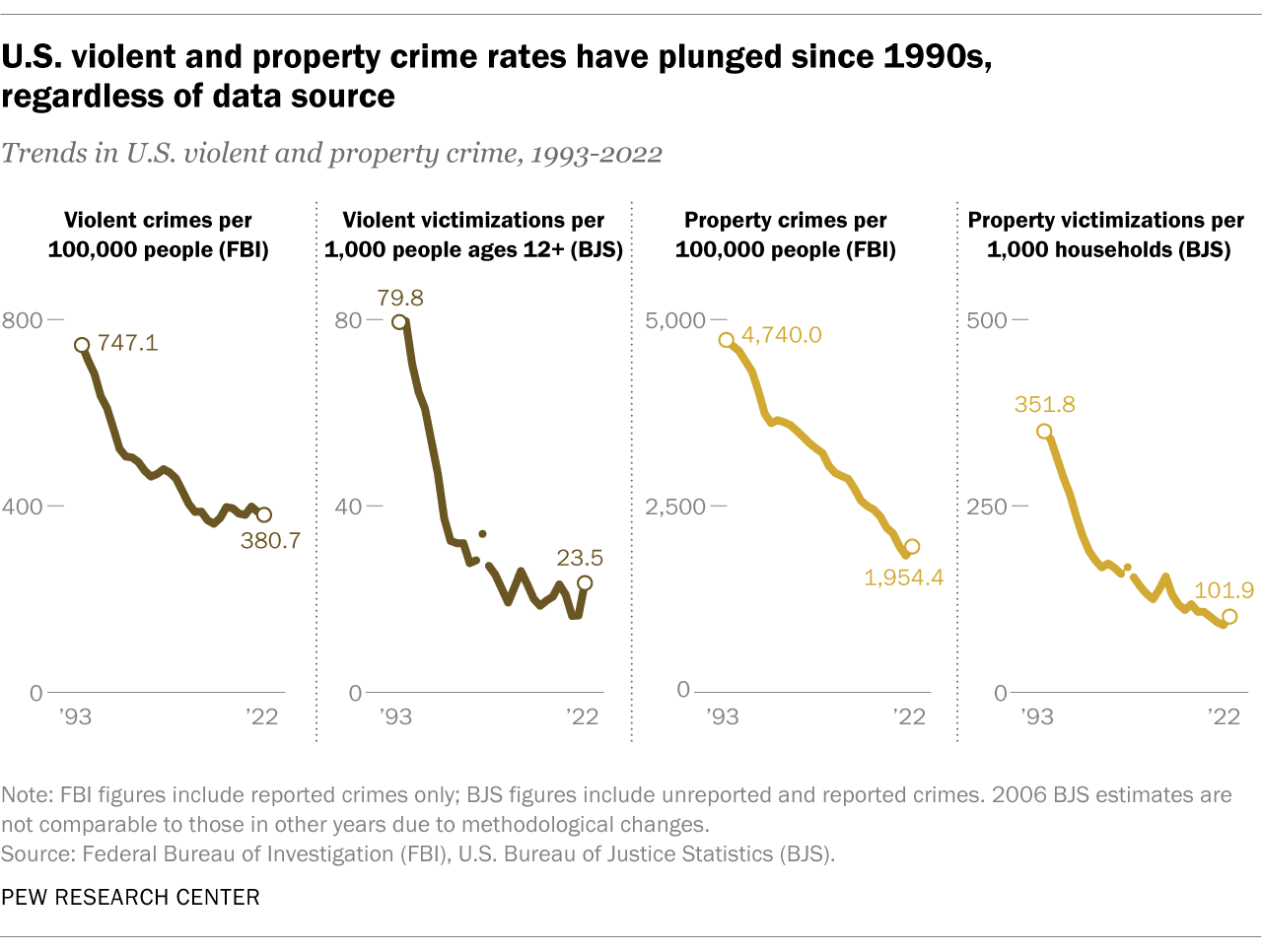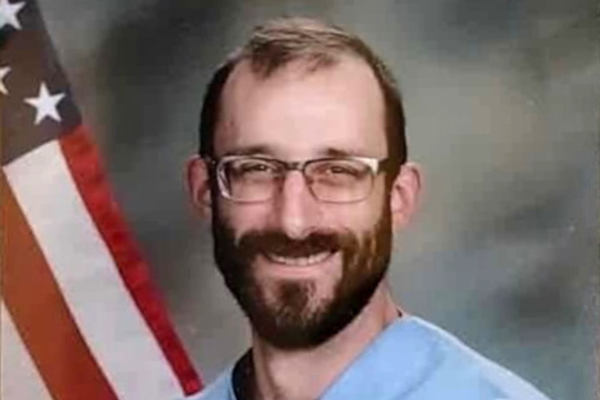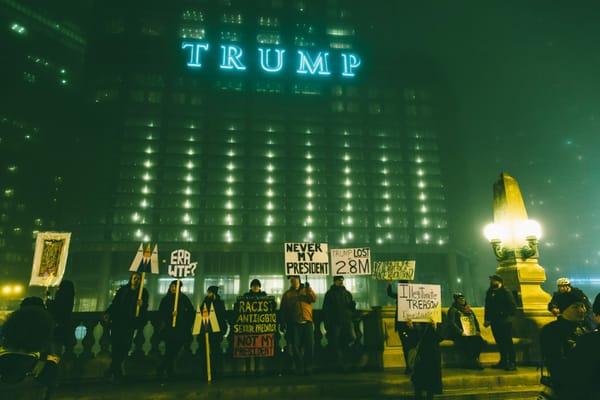Iryna Zarutska and the doom loop of social media and politics
In 21st century America, our politicians take their cues from social media, and not the other way around. It's made debate more performative, less nuanced, and much, much dumber.

On Tuesday, North Carolina's state legislature debated and then passed a big crime bill birthed by memes.
The bill will do a lot of things—ending cashless bail for certain cases, reducing judicial discretion over sentencing, and ordering mandatory mental health assessments in some cases.
And, because politics is politics, Republicans introduced the bill's headliner—restarting the death penalty, including, potentially, the electric chair and (*checks notes) firing squads—as a last-minute amendment to catch Democrats unaware.
Whatever you think about those ideas, the conversation had an auspicious beginning.
It wasn't motivated by a wave of violent crime, as you would expect with any major changes to our criminal justice system. It was derived—as so much of our politics is today—from a surge of right-wing activity on the internet following the murder of Iryna Zarutska, a young woman who was killed on public transit in Charlotte in August.
Zarutska's story is tragic. She was a Ukrainian refugee who fled violence in her home country. Her accused killer, Decarlos Brown Jr., is a man with a history of mental illness and crime. He reportedly told his family that he believed Zarutska was trying to control his mind.
READ MORE: The case for breaking social media in America
Zarutska's story is awful. It's worse that a visual record of it will exist forever on the internet.
But it begs the question, however callous it might sound: Why this crime? Why this murder? And what does our obsession with it say about us?
Crime happens every day. It happens wherever people are. Thousands of people are murdered every year in the US, but despite a COVID-era bump, there's evidence that violent crime is much better today than it was in the 1990s.

And in Charlotte, where Zarutska's murder happened, violent crime so far this year is down 25%, according to the city's police department.
So, again, why is this tragedy the tragedy du jour?
The answer is complicated, but the politics of it all? They're dumber than you think.
Help make journalism like this happen by upgrading to a $4 monthly subscription. Paid subscribers also get an audio version of The Living South.
Making policy out of viral stuff
In American history, wherever media goes politics goes too and vice versa.
In one of those media history classes I took a long time ago—one of the pre-requisites of getting a journalism degree—we learned about the USS Maine, and how the American media's distorted coverage of its 1898 sinking started a war with Spain.
Joseph Pulitzer, the publisher who journalists named their highest honor for, played a formative role in pushing that warped coverage, which blamed the Spanish for the Maine's sinking despite conflicting evidence of the cause. Some people called it "yellow journalism."
Yellow journalism could only dream of having the speed or the efficacy of a half-cooked meme today. The internet, especially right-wing media, feasted off the viral video of Zarutska's killing.
Zarutska—who was young, white, and pretty—started showing up everywhere.
In American media, we've always had a problem with the crimes we choose to make hay of, but things have gotten worse. As the Marshall Project reported in 2020, crimes that happen to white people, or that happen in places where white people hang out, get more attention and nuance.
The "Black Lives Matter" movement, before it became consumed by the political controversy, started in part by asking questions about the tragedies we choose to care about and the ones we don't—and the relationship to, of all things, what a person looks like. Does this person's murder matter more than that person? American media has answered that question many times over.
Some politicians understand that and some don't. President Donald Trump—whose greatest talent is his understanding of the doom loop of social media and politics and media—weaponized Zarutska's story to draw attention away from the president's connections to the convicted child sex offender Jeffrey Epstein. Trump's allies took his cue.
They said Democrats were "soft on crime" and were responsible for Decarlos Brown's being on that train. Never mind that the district attorney who handled Brown's previous cases was a Republican and that this year Trump made that D.A. a United States attorney overseeing law enforcement in western NC. (Only one reporter bothered to mention that.)
And, despite the evidence that violent crime in America isn't going through anything particularly extraordinary in this moment, American media reported on the social media reaction to Zarutska and then social media responded to the reporting and then media reported on the reaction to the reporting on the reaction and we're all a little dumber now.
Because of it, North Carolina's legislature—which has taken more than a month to try to figure out a solution to people losing health care on Oct. 1 because of a budget shortfall—spent only a few days writing laws in back rooms to "fix" crime.
If you criticize the crime bill or the people writing it, it means you don't care about Iryna, they want us to believe.
Mission accomplished. Jeffrey who?
It's not a bug. It's a feature. Americans are told that crime is really bad so they think it's worse than ever, even though there's not much evidence of that, and then reporters write about what Americans believe and that belief helps some politicians win elections.
During NC's debate on the crime bill, Laura Budd, a North Carolina state representative from Charlotte, was one of the few people to state the obvious—that Zarutska's killing is being exploited by partisan hacks.
Your sadness for Zarutska's killing might be real, but the politics behind the reaction aren't.
"It was not until the video was released by (Charlotte Area Transit System), and it went viral, and the White House noticed that suddenly, suddenly we gave a damn," Budd said. "And now here we are."
Some people, and maybe even some politicians, are truthfully sad about Zarutska's story. Who wouldn't be?
But do these folks cry buckets every day as they consume the news of humanity's ever-crashing calamities?
If a tree falls in the woods and nobody hears it, did it make a sound? Likewise, if a murder happened and it isn't spinning around ceaselessly on social media, do politicians give a shit about it?
There's a real story to be had here about how the American mental health system, especially in the South and in rural places, is made up of duct tape and popsicle sticks—how it leaves many people, especially poor people and people who have psychotic disorders, without stable treatment, housing, or a way to fit within society.
We might also consider criminal justice reforms that address the holes in our imperfect system, but wouldn't it be better to make decisions off trends rather than a single event?
Despite the magnificence of the human brain and its ability to hold two seemingly conflicting thoughts at the same time, we're told that you cannot acknowledge the tragedy of Zarutska's killing and the tragedy of an accused killer's untreated psychosis and be a decent person at the same time.
That story cannot fit in a meme. We let the algorithm do our thinking for us. Nuance is like a single leaf trembling in the path of a leaf blower. In its stead, here's an AI-generated image of the late Charlie Kirk comforting Zarutska in her final moments. What's wrong with us?
Zarutska's story is horrible and heart-rending.
But if it's an indictment of how the American criminal justice system works, then it's an indictment too of our collapsing information ecosystem, the toilet-bowl physics of social media, and the politicians who exploit it.
The Living South was created by career North Carolina journalist Billy Ball in 2025. It centers on the most interesting stories and people in the American South. Share this story with your friends and help The Living South grow.





